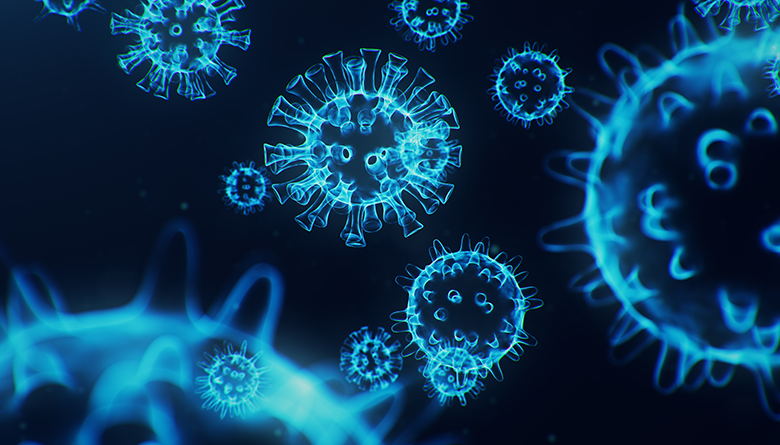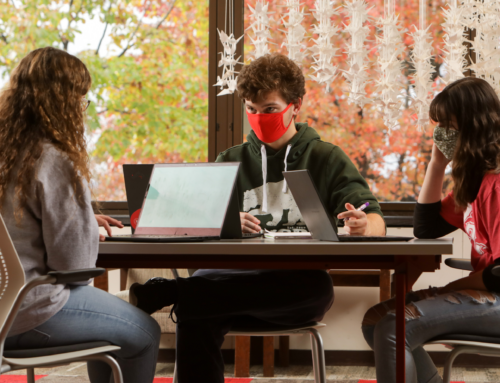By Regina Stracqualursi
So many of the actions we take every day to protect ourselves against COVID-19 involve avoiding contact with the virus that causes it. We wear a mask to avoid spreading respiratory droplets to others. We wash our hands with soap and water and wipe down our counters, doorknobs, and light switches to kill any germs we have been exposed to. But what if we could also block infection when the virus is able to make its way onto human cells? Two researchers at Rensselaer Polytechnic Institute may be on to a way to do just that.
Soon after the COVID-19 pandemic began, Jonathan Dordick, professor of chemical and biological engineering, and Robert Linhardt, professor of biocatalysis and metabolic engineering, chemistry, and chemical biology, began searching for a decoy strategy that could prevent people from becoming ill with COVID-19.
The research builds upon the antiviral work they have done in the past for other viruses, including influenza A, Zika, and dengue. What do these viruses all have in common? Spike proteins, on their surfaces, which bind to human cells to cause infection. A decoy strategy involves binding another substance to the virus’s surface so it cannot invade human cells.
The researchers have been looking at a variety of substances that could accomplish this, including heparin, a drug that is already approved by the Food and Drug Administration (FDA). The drug, commonly used as a blood thinner, may prevent COVID-19 by binding tightly to the spike proteins on SARS-CoV-2, the virus that causes the disease. When the virus is bound to the heparin, it prevents the virus from binding to a human cell.
“If it is bound tight enough, not only would it trap the virus but the virus can’t exist sitting there bound to the heparin,” said Dordick. “It will just degrade.”
Dordick and Linhardt believe a variation of heparin without a blood-thinning side effect could be used via nasal sprays or nebulizers to protect people from becoming ill.
Recently, the researchers tested the antiviral effectiveness of heparin against remdesivir, the medication currently being used to treat patients hospitalized with COVID-19, and found that both performed on par with one another.
“We’re learning how to block viral infection, and that is knowledge we are going to need to rapidly confront pandemics,” said Dordick. Such antiviral strategies could help control diseases like COVID-19 until vaccines are found.



